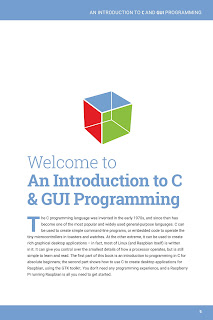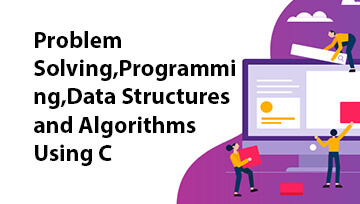Data Types - C Programming
Data types in c refer to an extensive system used for declaring variables or functions of different types. The type of a variable determines how much space it occupies in storage and how the bit pattern stored is interpreted.
Integer Types
The following table provides the details of standard integer types with their storage sizes and value ranges −
| Type | Storage size | Value range |
|---|
| char | 1 byte | -128 to 127 or 0 to 255 |
| unsigned char | 1 byte | 0 to 255 |
| signed char | 1 byte | -128 to 127 |
| int | 2 or 4 bytes | -32,768 to 32,767 or -2,147,483,648 to 2,147,483,647 |
| unsigned int | 2 or 4 bytes | 0 to 65,535 or 0 to 4,294,967,295 |
| short | 2 bytes | -32,768 to 32,767 |
| unsigned short | 2 bytes | 0 to 65,535 |
| long | 8 bytes | -9223372036854775808 to 9223372036854775807 |
| unsigned long | 8 bytes | 0 to 18446744073709551615 |
Given below is an example to get the size of various type on a machine using different constant defined in limits.h header file −
#include <stdio.h>
#include <stdlib.h>
#include <limits.h>
#include <float.h>
int main(int argc, char** argv) {
printf("CHAR_BIT : %d\n", CHAR_BIT);
printf("CHAR_MAX : %d\n", CHAR_MAX);
printf("CHAR_MIN : %d\n", CHAR_MIN);
printf("INT_MAX : %d\n", INT_MAX);
printf("INT_MIN : %d\n", INT_MIN);
printf("LONG_MAX : %ld\n", (long) LONG_MAX);
printf("LONG_MIN : %ld\n", (long) LONG_MIN);
printf("SCHAR_MAX : %d\n", SCHAR_MAX);
printf("SCHAR_MIN : %d\n", SCHAR_MIN);
printf("SHRT_MAX : %d\n", SHRT_MAX);
printf("SHRT_MIN : %d\n", SHRT_MIN);
printf("UCHAR_MAX : %d\n", UCHAR_MAX);
printf("UINT_MAX : %u\n", (unsigned int) UINT_MAX);
printf("ULONG_MAX : %lu\n", (unsigned long) ULONG_MAX);
printf("USHRT_MAX : %d\n", (unsigned short) USHRT_MAX);
return 0;
}
Floating-Point Types
The following table provide the details of standard floating-point types with storage sizes and value ranges and their precision −
| Type | Storage size | Value range | Precision |
|---|
| float | 4 byte | 1.2E-38 to 3.4E+38 | 6 decimal places |
| double | 8 byte | 2.3E-308 to 1.7E+308 | 15 decimal places |
| long double | 10 byte | 3.4E-4932 to 1.1E+4932 | 19 decimal places |
The following example prints the storage space taken by a float type and its range values −
#include <stdio.h>
#include <stdlib.h>
#include <limits.h>
#include <float.h>
int main(int argc, char** argv) {
printf("Storage size for float : %d \n", sizeof(float));
printf("FLT_MAX : %g\n", (float) FLT_MAX);
printf("FLT_MIN : %g\n", (float) FLT_MIN);
printf("-FLT_MAX : %g\n", (float) -FLT_MAX);
printf("-FLT_MIN : %g\n", (float) -FLT_MIN);
printf("DBL_MAX : %g\n", (double) DBL_MAX);
printf("DBL_MIN : %g\n", (double) DBL_MIN);
printf("-DBL_MAX : %g\n", (double) -DBL_MAX);
printf("Precision value: %d\n", FLT_DIG );
return 0;
}





















